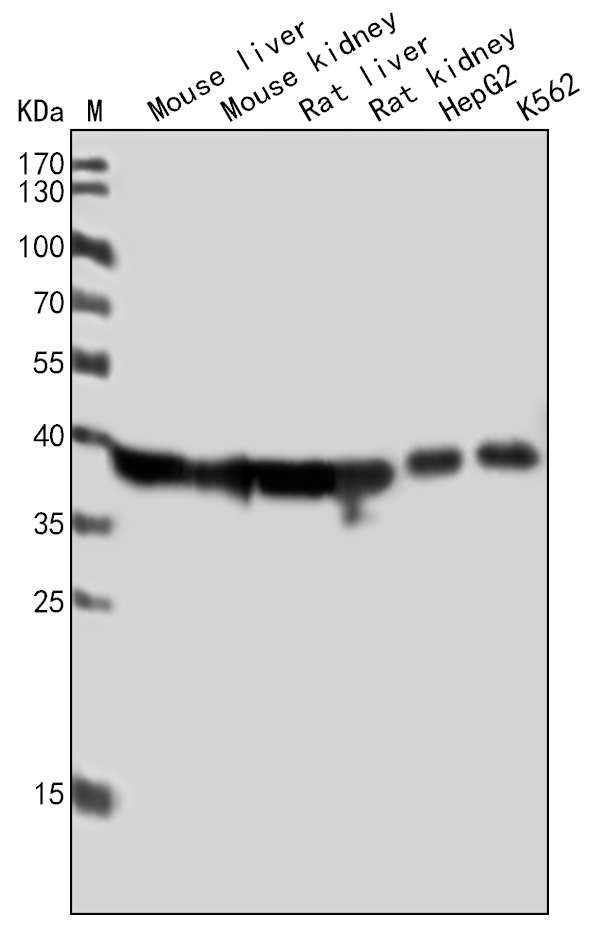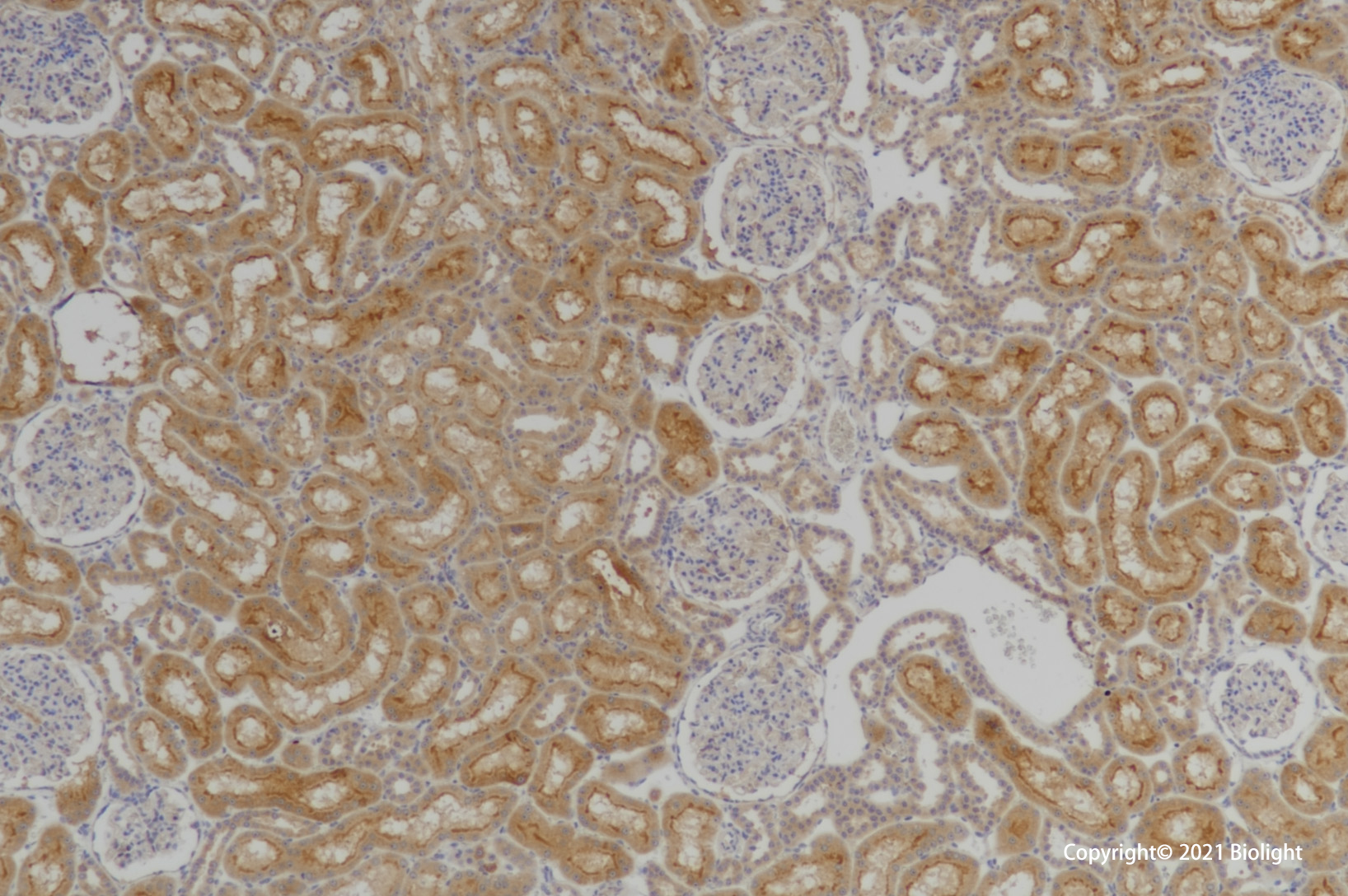
Anti-ARG1 Antibody, Rabbit Polyclonal
产品编号:PA00180HuA10
$ 询价
规格 50uL 100uL 200uL 可选
产品名称:Anti-ARG1 Antibody, Rabbit Polyclonal
经验证的应用: WB
交叉反应:/
特异性:human ARG1
免疫原:Recombinant human ARG1 protein, fragment Met1~Lys322; UniprotKB: P05089
制备方法:Produced in rabbits immunized with human ARG1, and purified by antigen affinity chromatography.
来源:Polyclonal Rabbit IgG
纯化:Immunogen affinity purified
缓冲液:Supplied in PBS, 50% glycerol and less than 0.02% sodium azide, PH7.4
偶联物:Unconjugated
状态:Liquid
运输方式:This antibody is shipped as liquid solution at ambient temperature. Upon receipt, store it immediately at the temperature recommended.
储存条件:This antibody can be stored at 2℃-8℃ for one month without detectable loss of activity. Antibody products are stable for twelve months from date of receipt when stored at -20℃ to -80℃. Preservative-Free. Avoid repeated freeze-thaw cycles.
图片:
Figure1.Western blot analysis of extracts of various cell lines using ARG1 antibody (PA00180HuA10) at 1:1000 dilution. Lysates/proteins: 25ug per lane.Blocking buffer: 10% nonfat dry milk in TBST. Detection: ECL Basic Kit . Exposure time: 1s.
Figure2.Immunohistochemistry (Formalin/PFA-fixed paraffin-embedded sections) analysis of human kidney sections labelling ARG1 with purified PA00180HuA10 at 10ug/ml. Heat mediated antigen retrieval was performed using Heat mediated antigen retrieval using Bond™ Epitope Retrieval Solution (EDTA, pH 9.0) . Tissue was counterstained with Hematoxylin. Rabbit specific IHC polymer detection kit HRP/DAB secondary antibody was used at 1/4000 dilution. PBS instead of the primary antibody was used as the negative control.
背景信息:Arginase 1/ARG1. Arginase 1, also known as liver arginase, is a binuclear manganese metalloenzyme. It is a key enzyme of the urea cycle that catalyses the conversion of L-arginine into L-ornithine and urea, the final cytosolic reaction of urea formation in the mammalian liver (1). Arginase 1 is abundantly expressed in liver, but it is also expressed in cells and tissues that lack a complete urea cycle, including lung. Arginase is a critical regulator of nitric oxide synthesis and vascular function (2). It is implicated in a variety of human diseases including vascular disease, pulmonary disease, infectious disease, immune cell function and cancer (3). In humans, hereditary defects in arginase result in an accumulation of arginine in the blood known as hyperarginemia (4). Arginase deficiency can also result in the accumulation of nitrogen in the form of ammonia, which results in hyperammonemia (5).
全称:Arginase-1 (ARG1)
说明书:待上传


